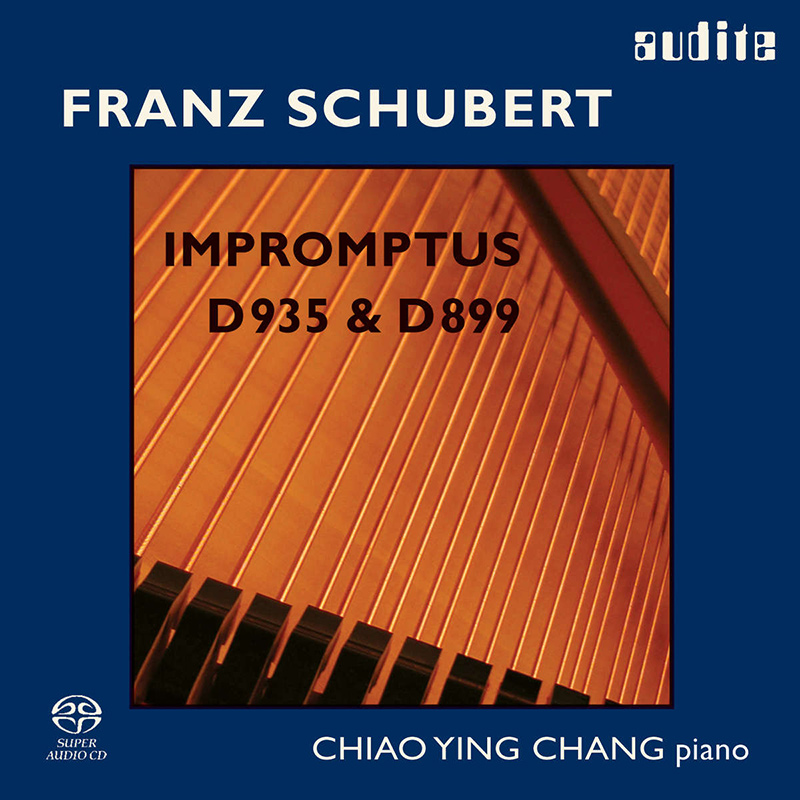Logowanie
Dlaczego wszystkjie inne nie brzmią tak jak te?
Chai Lang, Fan Tao, Broadcasting Chinese Orchestra
Illusive Butterfly
Butterly - motyl - to sekret i tajemnica muzyki chińskiej.
SpeakersCorner - OSTATNIE!!!!
RAVEL, DEBUSSY, Paul Paray, Detroit Symphony Orchestra
Prelude a l'Apres-midi d'un faune / Petite Suite / Valses nobles et sentimentales / Le Tombeau de Couperin
Samozapłon gwarantowany - Himalaje sztuki audiofilskiej
PROKOFIEV, Stanislaw Skrowaczewski, Minneapolis Symphony Orchestra
Romeo and Juliet
Stanisław Skrowaczewski,
✟ 22-02-2017
BARTOK, Antal Dorati, Philharmonia Hungarica
Dance Suite / Two Portraits / Two Excerpts From 'Mikrokosmos'
Samozapłon gwarantowany - Himalaje sztuki audiofilskiej
ENESCU, LISZT, Antal Dorati, The London Symphony Orchestra
Two Roumanian Rhapsodies / Hungarian Rhapsody Nos. 2 & 3
Samozapłon gwarantowany - Himalaje sztuki audiofilskiej
Winylowy niezbędnik
ClearAudio
Cartridge Alignment Gauge - uniwersalny przyrząd do ustawiania geometrii wkładki i ramienia
Jedyny na rynku, tak wszechstronny i właściwy do każdego typu gramofonu!
ClearAudio
Harmo-nicer - nie tylko mata gramofonowa
Najlepsze rozwiązania leżą tuż obok
IDEALNA MATA ANTYPOŚLIZGOWA I ANTYWIBRACYJNA.
Wzorcowe
Carmen Gomes
Celebrating the art and spirit of music - vol. 5 - Reference Songs
- CHCECIE TO WIERZCIE, CHCECIE - NIE WIERZCIE, ALE TO NIE JEST ZŁUDZENIE!!!
Petra Rosa, Eddie C.
Celebrating the art and spirit of music - vol. 3 - Pure
warm sophisticated voice...
SAMPLER - STS DIGITAL, Gregor Hamilton
Celebrating the art and spirit of music - vol. 2 - Love songs from Gregor Hamilton
...jak opanować serca bicie?...
SAMPLER - STS DIGITAL
Celebrating the art and spirit of music - vol. 1 - Leonardo Amuedo
Największy romans sopranu z głębokim basem... wiosennym
Lils Mackintosh
Celebrating the art and spirit of music - vol. 4 - A Tribute to Billie Holiday
Uczennica godna swej Mistrzyni
SCHUBERT, Chiao Ying Chang
Impromptus op. 142 D 935 Nr. 1-4 / Impromptus op. 90 D 899 Nr. 1-4
- Chiao Ying Chang - piano
- SCHUBERT
Still underestimated around 1900 as the sociable, unassuming, light-hearted composer of dances and art songs, the common image of Schubert was changed by thinkers and interpreters such as Theodor W. Adorno and Alfred Brendel after the Second World War. Now Schubert’s torn character was discovered, as well as his self-destructive complexes and struggles with Metternich’s repressive politics. Many fragments and sketches make clear just how hard Schubert fought for his independence from the father-figure of Beethoven. Schubert’s Impromptus are also to be classified in this connection. They were not composed as fantasies or improvisations, as the name might imply; rather, Schubert doubtlessly sought alternatives to Beethoven’s type of sonata with these works. His Impromptus, D. 899 were written in 1827. They open with a reserved march with variations; as a contrast, there follows a sparkling perpetuum mobile with a strikingly marked middle section. The third piece produces a dream-like atmosphere with its arpeggios out of broken chords and the finale is an Allegro scherzando with downwardly swooping cascades of notes requiring considerable technical elegance from the pianist. Schubert composed his Impromptus, D. 935 during the same year. The beginning is notable for its abrupt contrasts, impetuous dynamics and forward-pressing movement, only absorbed and cushioned by the following Impromptu in A-flat major. This is one of Schubert’s best-loved works, with its easily remembered song-like melody. The third piece adapts the theme from the incidental music to Rosamunde in five contrasting variations; Schubert had also used this theme in the String Quartet in A minor. The finale is a dance-like tune ending with a furious stretta. The Taiwan-born Chiao Ying Chang was already winning international prizes during her student years in London. She won the Royal Academy Prize in 1998 and 1999, second prize at the International AXA Competition in Dublin in the year 2000 and a special award at the World Piano Competition. Chiao Ying Chang has performed with important orchestras such as the National Irish Symphony Orchestra, the National Orchestra of Taiwan and the San Francisco Symphony Orchestra. She has undertaken concert tours in Taiwan, England, Ireland, the USA, Germany and Italy.
























